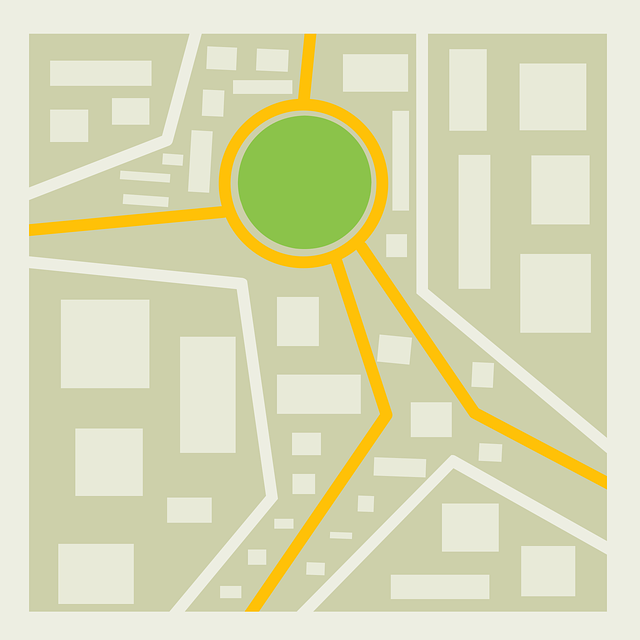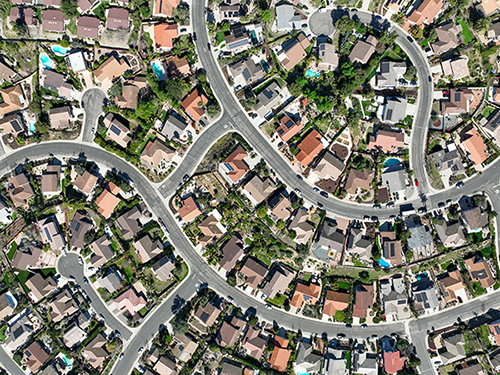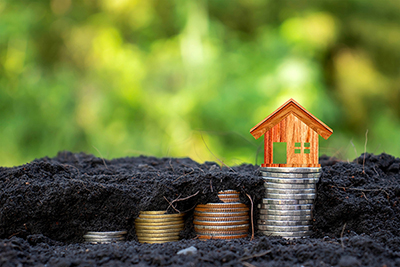Are you ready to dominate your local real estate market and become the go-to real estate agent in your neighborhood? Learning how to dominate a neighborhood with real estate farming is the key to unlocking this success. In this blog post, we’ll dive into expert tips and strategies to help you master the art of real estate farming in 2023. Get ready to plant the seeds of success and watch your business grow.
Short Summary
Become a local expert in your target area with real estate farming ideas to generate leads and increase profitability.
Leverage direct mail campaigns, online marketing techniques, community involvement and technology for success.
Track progress regularly to ensure continued success!
Understanding Real Estate Farming

Real estate farming is a targeted lead generation strategy that helps agents establish themselves as local experts in a specific neighborhood. This leads to increased revenue and a better reputation in the real estate business.
By focusing your marketing efforts in a particular area, you can be more successful in creating opportunities and positioning yourself as a local authority. Some real estate farming ideas include direct mail campaigns, social media marketing, and hosting community events.
So, how do you become the go-to real estate agent for homeowners in your desired area? Let’s break it down.
Defining Real Estate Farming
Geographic farming is a targeted lead generation strategy that involves focusing on a specific area or demographic to build relationships and provide value. There are two types of real estate farming techniques that can help you maximize your profits: demographic and geographic farming.
Increasing visibility in the local real estate market is essential for generating leads. Implementing techniques such as door direct mail, farming postcards, and distributing business cards at local events can help you do this.
Real estate farming offers the chance to gain referrals, build SEO backlinks with websites from local associations, and create partnerships with other local businesses in the chosen neighborhoods – all great opportunities.
Benefits of Real Estate Farming
The advantages of real estate farming are undeniable. Some of them include: increased brand awareness, higher lead generation, and improved profitability, which can help you stay ahead in the real estate farming game. Market conditions, the competitive landscape, and the consistency and effectiveness of your marketing efforts all play a role in helping you achieve results sooner in a specific neighborhood.
Real estate farming is a long-term strategy, and requires sustained effort. With the right approach, significant results can be seen in a relatively short period of time. You could achieve your goals in as little as six months to two years. In fact, an impressive rate of home sales is one home sold every 24.3 days!
With such promising opportunities, it’s time to dive into choosing the ideal neighborhood for your real estate farming endeavors.
Choosing Your Ideal Neighborhood

Choosing the right neighborhood for real estate farming involves careful research and evaluation of factors such as turnover rates, demographics, and competition. A successful farm typically includes between 250 and 500 homes.
Selecting the right target area in real estate farming is significant. It provides agents the opportunity to hone in on a particular audience and prove their proficiency in a particular locale.
By selecting a real estate farm area near your home, you can gain valuable insight into the area and build meaningful connections with the surrounding community. Let’s explore how to research and evaluate potential neighborhoods for your real estate farming efforts.
Researching Potential Neighborhoods
When establishing criteria for potential neighborhoods, consider factors like income levels, age demographics, and current homeownership trends. To research potential neighborhoods, start by defining your criteria. After that, conduct online research, visit the neighborhood and talk to locals. Consider future development, check transportation options, explore amenities, and review property values.
When visiting the neighborhood and talking to locals, take the opportunity to learn about potential future development, transportation options, amenities, and property values.
Assessing the potential of future development, transportation options, amenities, and property values requires considering factors such as population growth, job opportunities, and local infrastructure.
Evaluating Neighborhood Turnover Rates
Turnover rate is a crucial calculation to help you identify whether the geographic farm area has enough sales activity to sustain a successful prospecting campaign. The turnover rate of a potential farm area can be accurately understood with simple division. Divide the number of homes in the farm area by the number of homes sold in the last 12 months.
Determining the absorption rate involves calculating the rate of sales and then using that to figure out the months of inventory for the farm area. Assessing neighborhood turnover rate is key to guaranteeing a steady demand for real estate services in the chosen geographic area.
Crafting Your Real Estate Farming Strategy

A successful real estate farming strategy can be achieved by combining direct mail campaigns, online marketing techniques, and community involvement to foster meaningful relationships and generate leads.
Direct mail is the cornerstone of a real estate farming campaign. Focusing your marketing efforts in one particular neighborhood. Sending real estate farming postcards to the same area can help agents stay top of mind in that area.
Let’s delve deeper into direct mail campaigns, online marketing techniques, and community involvement to see how they can work together to boost your real estate farming success.
Direct Mail Campaigns
Direct mail campaigns, such as postcards and market update letters, can help agents stay top of mind with homeowners in their target area. Postcards, door hangers, and brochures are all great direct mail campaigns to help you maximize your real estate farming success.
A market update letter is a great way to stay informed about the real estate market and gain insights into current market trends. It highlights your expertise and involvement in the community. LabCoat Agents is a great option for real estate agents looking to get ahead with their business. They offer effective real-estate specific templates, such as the “just sold” postcard, to help you reach your goals.
Handwriting market update letters for luxury neighborhoods can demonstrate your commitment to providing a personal touch that can really pay off with discerning sellers.
Online Marketing Techniques
Online marketing techniques, including social media, email marketing, and SEO-optimized content, can help agents reach a wider audience and establish themselves as neighborhood experts. Some great social media strategies for real estate farming include creating an engaging Pinterest board for the local neighborhood, focusing on being neighborhood-specific on Instagram, setting up queries on Twitter, and using blogging and social media to share valuable content about the community.
Hosting virtual events in real estate farming can provide real estate agents with an opportunity to demonstrate their expertise. It can also foster meaningful connections with potential clients from the comfort of their homes. Combine these online marketing techniques with direct mail campaigns to effectively increase brand awareness.
Community Involvement
Engaging with the community through events, sponsorships, and local partnerships can help real estate agents build trust and rapport with potential clients. Agents can foster relationships with potential clients in their farming area by hosting community events, sponsoring local meetings, and providing refreshments. These are all great ways to build trust and deepen connections.
Agents can also engage with local organizations by offering online Zoom meetings and seminars to their audience and members, and by offering to contribute articles to their online marketing media and emails to their community.
Now that we’ve covered the main components of a real estate farming strategy, let’s talk about the importance of consistency and persistence.
Consistency and Persistence in Real Estate Farming

Consistency and persistence are essential for success in real estate farming. It is necessary to create and distribute content regularly, as well as track and analyze results. To maximize your success in real estate farming, it is recommended to post web and social media content at least once a week.
To stay on track, you need to create and distribute content regularly, and track and measure the results. Let’s explore how to effectively create and distribute content and track your success.
Content Creation and Distribution
By creating and regularly distributing valuable content, such as your market reports, updates and local news, you can increase your visibility and credibility. Content creation involves researching topics, brainstorming ideas, writing content, editing, and publishing.
Content distribution can be a great way to reach your target audience. You can promote your content on social media, through email marketing, and by optimizing it for search engines. Ensuring that you consistently create and distribute content will help you maintain your visibility and credibility in your target area.
Tracking and Measuring Success
Tracking and measuring the success of real estate farming efforts is essential to evaluate the ROI and tweak the strategy accordingly. We can use metrics such as the number of leads generated, the number of deals closed, average time to close a deal, average commission earned, and customer satisfaction to track and measure our success.
Setting measurable goals, tracking progress regularly, and using data to inform decisions are great tips for tracking and measuring success. By keeping track of your progress and making necessary adjustments to your strategy, you can ensure that your real estate farming efforts continue to produce results.
Leveraging Technology for Real Estate Farming

Technology can play a significant role in real estate farming, with CRM systems and neighborhood-specific websites helping agents manage leads and showcase their expertise. Ranking websites for various neighborhoods is an effective way to get started with a real estate farming campaign.
In this section, we will discuss how to utilize CRM systems and create neighborhood-specific websites to maximize your real estate farming efforts.
Utilizing CRM Systems
Utilize CRM systems to automate communication, track leads, and ensure prompt follow-up with potential clients. A real estate CRM is a powerful customer relationship management system that enables you to efficiently tag farm contacts, automate digital communication, and track the value you deliver over the life of farming. It can help you stay on top of every point of contact and maximize your farming efforts.
CRM systems, or Customer Relationship Management systems, are incredibly powerful software platforms that help businesses build and maintain strong relationships with customers. They enable businesses to track customer interactions, manage sales leads, and provide outstanding customer service.
Creating Neighborhood-Specific Websites
Create neighborhood-specific websites to provide valuable information, market updates, and community news. This positions agents as the go-to resource for homeowners in their target area. Parkbench is a powerful platform that allows you to create neighborhood-specific websites and post content. This can go far to establish yourself as a local market expert and make a lasting impression.
Agents can position their website on the first page of Google for every search related to a neighborhood by creating a website and setting up pages that specifically address the locations they’re doing their real estate farming in, and following a specific method. This is an excellent way to boost your online presence and reach more potential clients.
Summary
In conclusion, real estate farming is an effective strategy for dominating your local real estate market and becoming the go-to agent in your chosen neighborhood. By understanding the concept of real estate farming, choosing the right neighborhood, crafting a solid strategy, maintaining consistency and persistence, and leveraging technology, you can maximize your success and grow your real estate business. Now is the time to embrace real estate farming and reap the benefits of your hard work and dedication. For more on real estate farming: https://www.quickcommissionadvance.com/blog/real-estate-farming-master-your-market-in-2023/
Frequently Asked Questions

How to effectively farm real estate?
Focusing on an area with desirable local amenities, boundaries that are easy to identify, and minimal competition from other agents can help ensure your success when farming for real estate. Make sure the area you choose is one that excites and interests you, and research the number of homes in the neighborhood and its turnover rate.
How big should a real estate farm area be?
A real estate farm area should be manageable in size, usually not exceeding 500 homes. If there is strong competition in the area, consider expanding the farm to a different area or using different tactics.
When an agent is clearly farming a specific neighborhood?
Agents cultivate relationships in specific neighborhoods to become the local expert and go-to agent. Like this they generate leads that evolve into long-term clients and reliable business.
This strategy allows agents to build trust and credibility with potential clients, which can lead to more referrals and repeat business.
What are some effective real estate farming techniques?
Demographic and geographic farming, direct mail campaigns, social media marketing, and community involvement are all effective tools for real estate farming that can help create relationships with clients and drive leads.
These tools can be used to target specific areas and demographics, build relationships with potential clients, and generate leads. They can also be used to create a presence in the community and build brand awareness.
Real estate farming is an important part of any successful real estate business.
How can I use technology to improve my real estate farming efforts?
Take advantage of technology by using CRM systems to stay in touch with leads and creating specific websites to show your knowledge and give helpful content to prospects.
By leveraging technology, you can stay connected with leads and provide them with valuable content. This will help you build trust and credibility with prospects, and ultimately increase your sales.

Leave a Reply